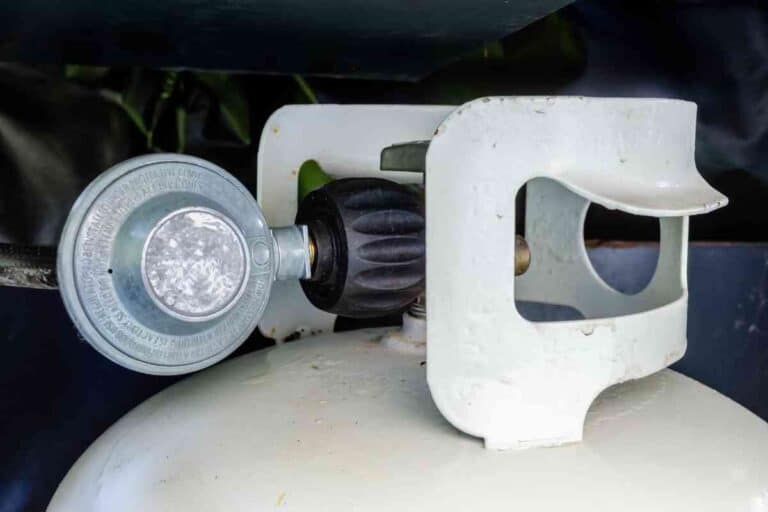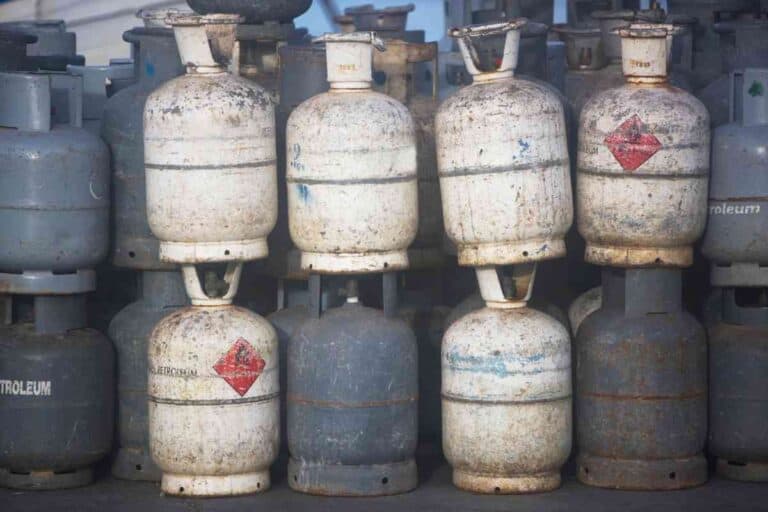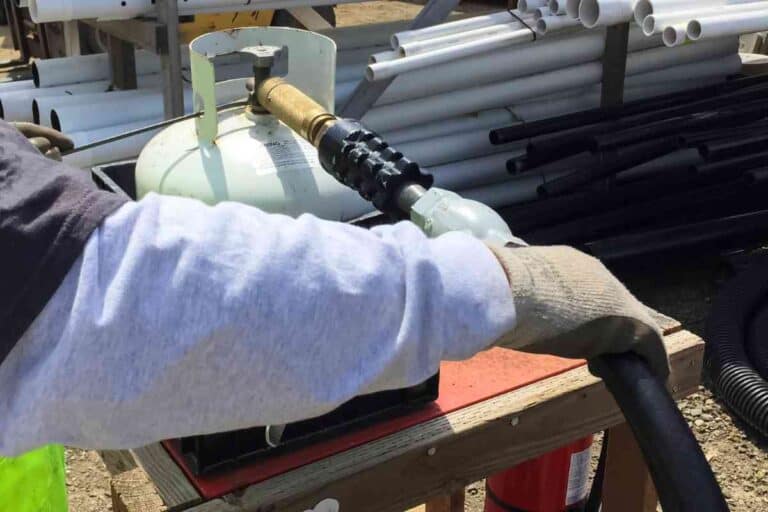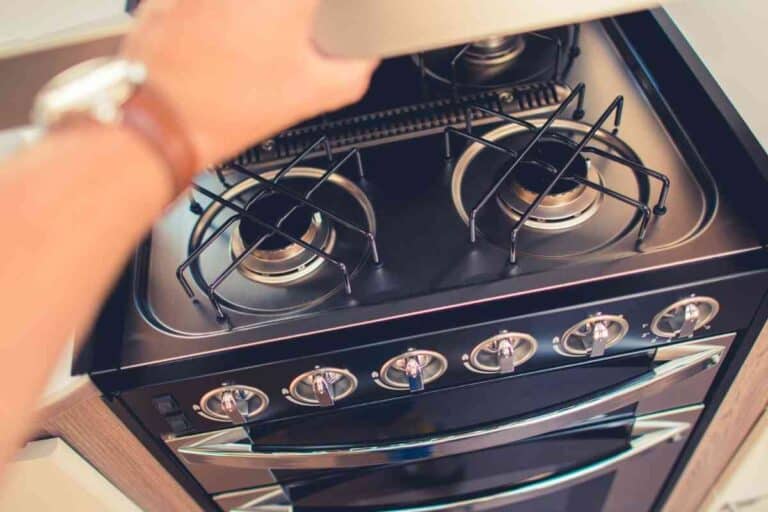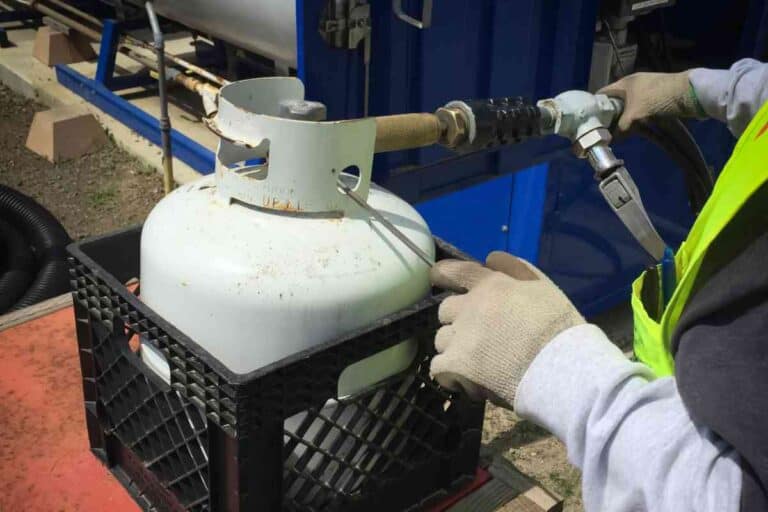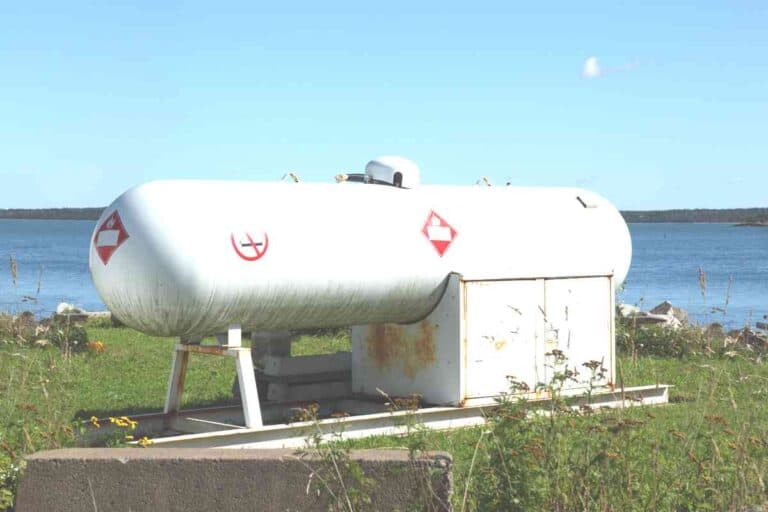Is It Legal To Store Propane Tanks Indoors?
As we embrace the traditional barbecue season, the thought of grilling delights many. Yet, it brings us to an important consideration—where to place our propane tanks. While the convenience of having them close by is tempting, let’s explore why indoor placement isn’t just a bad idea—it’s against the law.
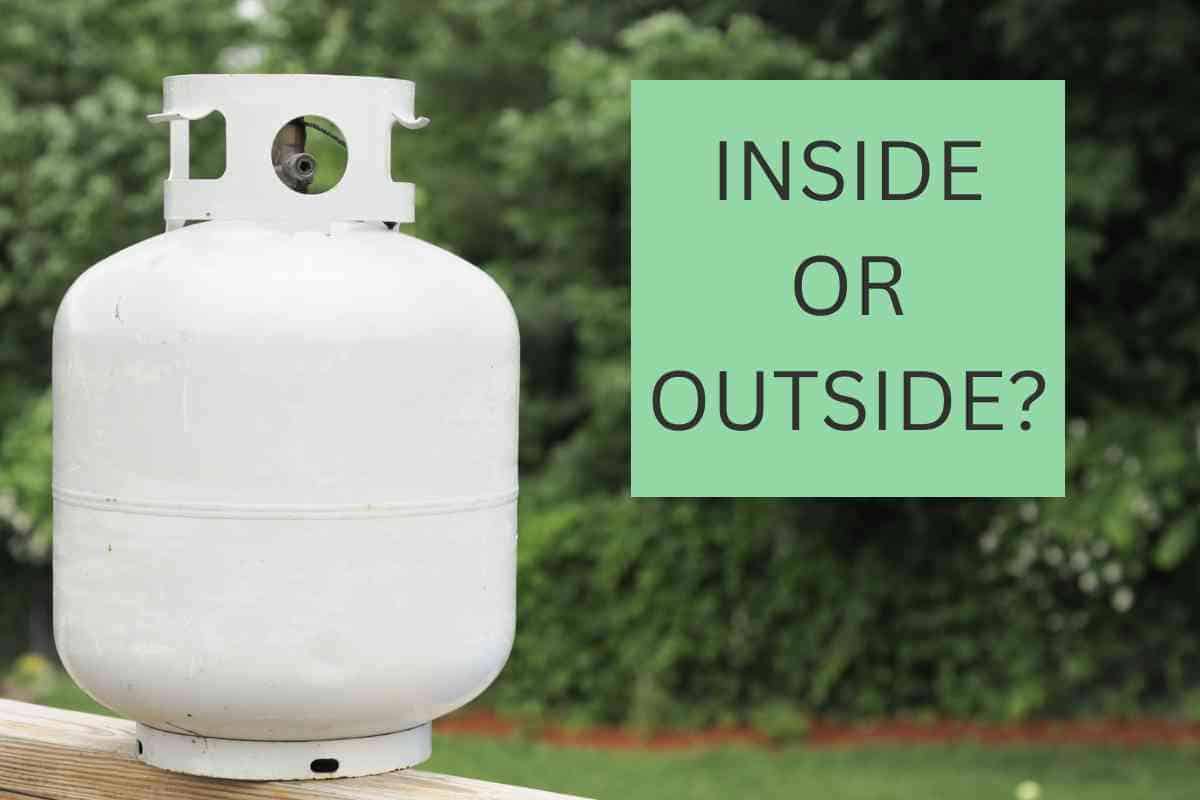
Related Post! How Long Do Propane Tanks Last? Answered!
Is It Legal To Store Propane Tanks Indoors?
Storing propane tanks inside is generally illegal due to the high risk of fire and explosion. Safety regulations require them to be kept outdoors, in well-ventilated areas, to prevent accidents. Always follow local codes and the manufacturer’s guidelines to ensure safety and compliance with the law.
Propane is a highly flammable gas that can lead to disastrous outcomes if it comes into contact with any ignition source. This rule isn’t just for storage; using propane-powered equipment indoors without proper ventilation and safety measures is a risk you don’t want to take.
So, what makes indoor propane use so risky? The main dangers include the high risk of fire or explosion and significant health risks. Since propane is both colorless and odorless, detecting a leak without a gas detector—a device not commonly found in homes—can be nearly impossible. And the health implications of inhaling propane are serious, ranging from dizziness and nausea to more severe, long-term issues like damage to the central nervous system due to carbon monoxide poisoning.
Key Takeaways for Your Safety:
- It’s illegal and unsafe to store or use propane tanks indoors without proper precautions.
- Always follow the manufacturer’s instructions and local codes and regulations.
- For indoor use, ensure proper ventilation and regular professional inspections.
- Store propane tanks outdoors in a well-ventilated area, away from heat sources and electrical tools.
- Regularly check for leaks and maintain your tanks in good condition to prevent accidents.
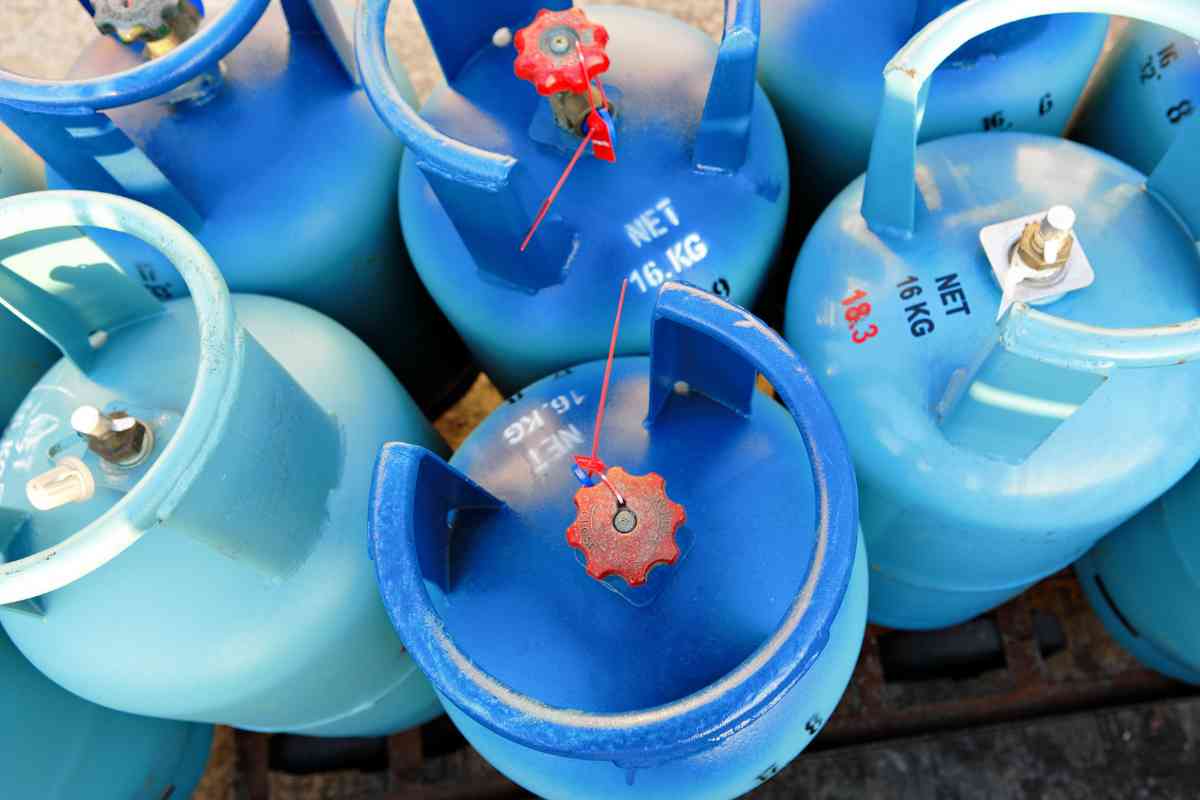
Can Propane Ever Be Used Safely Indoors?
Given the inherent dangers, you might wonder if it’s ever safe to use propane tanks inside. Strictly speaking, while it’s typically prohibited due to the associated risks, there are measures to enhance safety if necessary. Ensuring adequate ventilation, such as using an indoor hood, and conducting regular inspections by professionals can mitigate some risks. Still, the best practice is to avoid indoor use altogether.
Related Post! Why Do Propane Tanks Feel So Cold?
Smart Storage Solutions for Propane Tanks
So, where and how should you store your propane tanks to keep your home safe? Always opt for outdoor storage in a well-ventilated area. This practice prevents gas build-up and reduces the risk of fire or explosion. Keep propane cylinders away from excessive heat, direct sunlight, and electrical devices to avoid increasing the tank’s pressure or causing a leak. Storing tanks in an upright position and following the manufacturer’s guidelines are additional steps to ensure safety. And remember, if a tank is to be stored for an extended period, it’s safer to empty it first.
By understanding the risks and adhering to these guidelines, you can enjoy the benefits of propane for cooking and heating while keeping your home and loved ones safe. Have you checked your propane storage and usage practices lately?
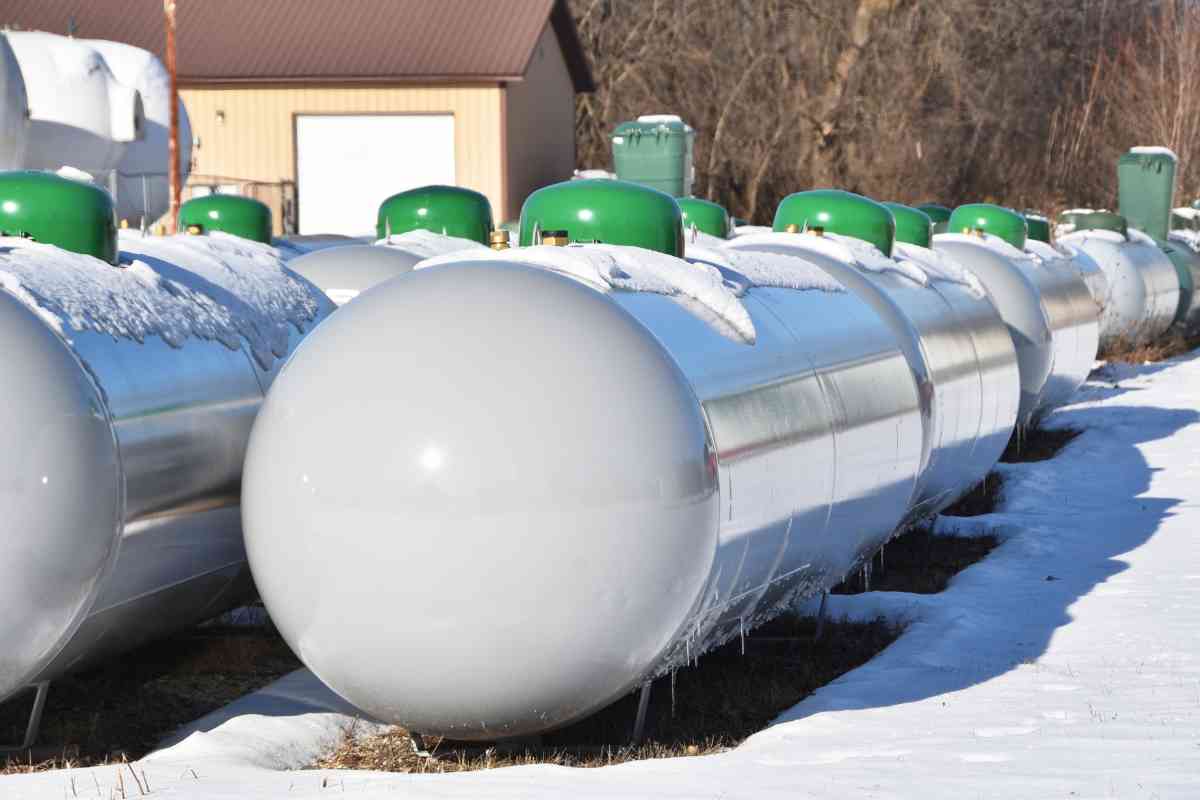
What is the Proper Use of Propane Tanks?
When it comes to ensuring the safety of your home and loved ones, the National Fire Protection Association (NFPA) sets the gold standard. Especially concerning propane tanks, their guidelines are not just recommendations but essential practices every homeowner should follow. Let’s dive into the specifics that keep your home safe and your propane working efficiently.
The placement of your propane tank is more than just a matter of convenience; it’s a critical safety consideration. A standard rule of thumb is keeping your tank at least 10 feet away from your house. However, the rule scales with size: tanks holding 200 to 500 gallons of propane should be placed 25 feet away from your home or any other structures. And if you’re juggling multiple tanks, a gap of 3 feet between each is mandatory to prevent hazards.
Related Post! Will An Overfilled Propane Tank Leak?
The Vital Role of the Safety Relief Valve
An often overlooked but crucial part of your propane tank is the safety relief valve. This feature must remain unobstructed and far from any ignition sources to function correctly. Its role can’t be understated—it’s your first line of defense against potential disasters.
Versatile and Vital: The Many Uses of Propane
Propane tanks are incredibly versatile, supporting a wide range of applications from heating and cooking to power generation, fueling vehicles, and serving agricultural and industrial purposes. With such a broad spectrum of uses, ensuring your tank is well-maintained becomes even more critical. Regular servicing alongside the appliances it powers is non-negotiable for efficiency and safety.
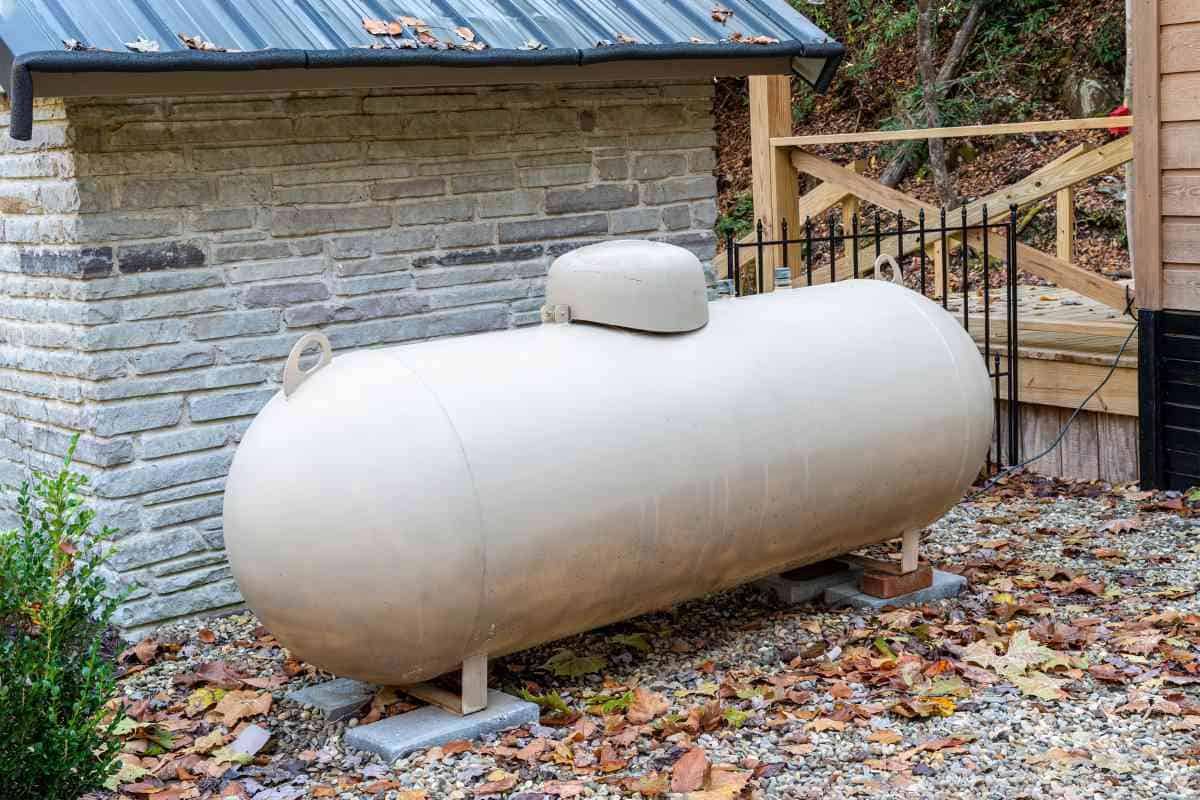
Safety First: Storage and Handling
Regardless of its size or application, the outside is the only suitable place for a propane tank. This placement ensures optimal temperature control—essential since temperatures above 120°F can increase pressure inside the tank, posing a risk, while lower temperatures can decrease its performance.
Following the safety instructions for both your tank and the appliances it connects to is crucial. Protective gear like gloves and safety goggles should be worn during handling to prevent injuries. In the unfortunate event of a leak, shutting off the gas supply and ventilating the area is imperative before any ignition sources are reintroduced.
Key Takeaways for Propane Safety:
- Placement is paramount: Keep tanks at least 10 feet from your home, adjusting for size and maintaining 3 feet between multiple tanks.
- The safety relief valve is crucial for preventing accidents and must be kept clear of obstructions and ignition sources.
- Propane is versatile, powering everything from your grill to industrial facilities. This versatility means regular maintenance and care are non-negotiable.
- Outdoor storage in a well-ventilated area is the only option for safety, with attention to temperature to ensure efficient performance.
- Follow all safety guidelines provided with your tank and appliances, and don’t hesitate to wear protective gear when necessary.
By adhering to these practices, you can enjoy the benefits of propane safely and responsibly. Remember, when in doubt, consult a propane retailer or NFPA guidelines to ensure your practices are up to standard. Safety is a shared responsibility—let’s keep our homes safe together.
Related Post! Is It Safe To Leave A Propane Tank In The Car?
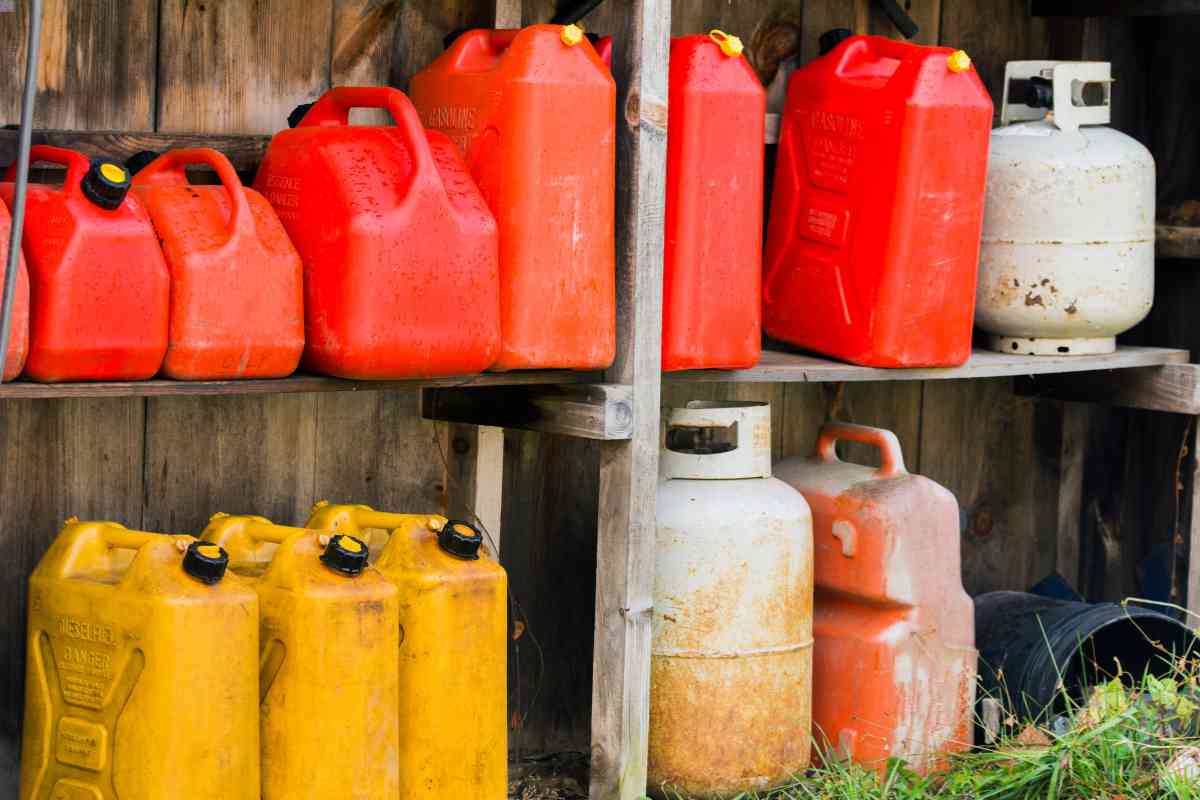
FAQ: Propane Tank Safety and Storage
Can I store my propane tank in the garage or shed?
Storing propane tanks in a garage or shed is not recommended due to the risk of fire from combustible materials or spark-producing equipment. Always store propane tanks outdoors in an open air, well-ventilated area to minimize risks.
Is the basement a safe place for propane storage?
No, the basement is considered an enclosed area and poses significant risks for flash fires or gas buildup. Propane should be stored outside to ensure safety and compliance with OSHA regulations.
What precautions should I take when storing propane tanks in cold weather?
In cold weather, ensure propane tanks are stored outside to prevent moisture buildup and maintain vapor space. Use a protective grill cover to shield the tank from the elements, but do not store it indoors or in damp areas.
How do I know the ideal location for propane tank storage?
The ideal location is outdoors, away from living areas, exits, stairways, and open flames. Ensure the storage area allows for easy access to the pressure relief valve and is clear of combustible materials.
What is the best practice for handling propane tanks to avoid leaks?
Regularly check the cylinder valve and repair valves as needed. Always handle tanks with care, ensuring they’re stored upright in a designated storage unit. Follow the manufacturer’s guidance for use and storage to prevent leaks.
Are special permits required for storing propane tanks?
Depending on your location and the size of your tank, special permits may be required. Check with local authorities and adhere to NFPA guidelines to ensure compliance and safety.

